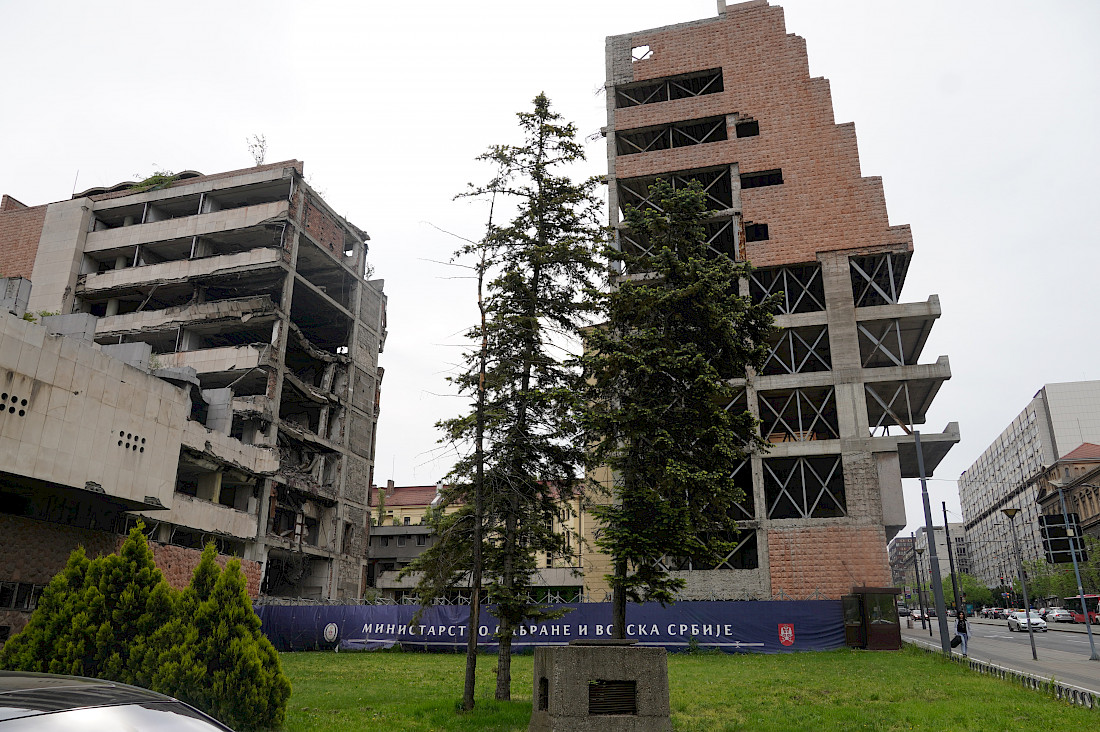Politics of Memory: Commemorating the 25th anniversary of the NATO intervention against the Federal Republic of Yugoslavia in Kosovo, Serbia, and ‘the West’
Speakers
- Christian Costamagna, Postdoctoral Fellow, Leibniz ScienceCampus »Eastern Europe – Global Area« (EEGA), Leipzig
- Nataša Kandić, Founder of the Humanitarian Law Center and Coordinator of the RECOM Reconciliation Network, Belgrade
- Franziska Tschinderle, Freelance Journalist for Southeast Europe, Tirana
Moderation
- Nevenka Tromp, Lecturer of European Studies, University of Amsterdam and Associate Professor of International Relations at Webster University, Leiden Campus in Netherlands
Topic
On March 24, 1999, NATO launched an airstrike campaign against the Federal Republic of Yugoslavia which would last for 78 days. The intervention‘s objective was to halt the persecution of Kosovo Albanians by Serbian troops and to force Yugoslavia’s president Slobodan Milošević to accept the terms of an internationally brokered peace settlement. But the NATO intervention was not without controversy. Albeit the “Operation Allied Forces” achieved to end armed confrontations in Kosovo, NATO’s ‘humanitarian war’ claimed a high toll on civilian lives, causing further damage to infrastructure, the environment and forcing up numbers of refugees.
Taking the 25th anniversary of the start of the NATO airstrike campaign as occasion, this roundtable discussion tackles the apparent rift in the landscape of commemoration. In Serbia, March 24 has returned into the centre of memory politics through official state commemorations in honour of the victims of the air raids. In Kosovo, NATO’s military campaign is commemorated as turning point in the brute conflict and a decisive step towards Kosovo’s independence. Meanwhile, there is a noticeable absence of commemoration in the member states of the North Atlantic Alliance. This is despite the fact that the intervention marks the Alliance’s first use of prolonged airstrikes for humanitarian proposes, as well as its first military campaign without prior approval of the UN.
How can we make sense of the divergence of commemoration of the NATO air campaign? Which function has March 24 assumed in the memory politics in Serbia and Kosovo? And how do we reconcile the dual nature of the NATO intervention as both a humanitarian action and a catalyst for further conflict?

